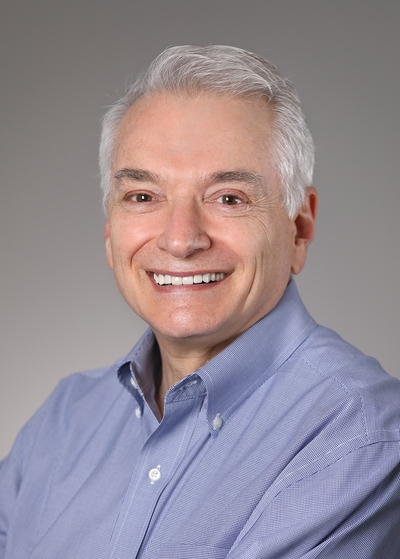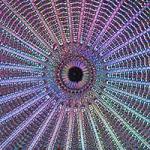
Leonardo G. Cohen, M.D.
Senior Investigator
Human Cortical Physiology and Neurorehabilitation Section
NINDS
Research Topics
The goal of our activity is to understand the mechanisms underlying plastic changes in the human central nervous system and to develop novel therapeutic approaches for recovery of function based on these advances. Our work has focused on the human motor system to understand skill acquisition, memory formation, consolidation and reconsolidating. We study cortical reorganization and brain network dynamics underlying behavior in patients with CNS lesions in particular stroke and traumatic brain injury. In healthy volunteers, we study cortical plasticity associated with motor skill learning and memory formation.
We utilize different techniques in the context of exploratory and well defined hypothesis-driven investigations including transcranial magnetic (TMS) and DC (tDCS) stimulation, fMRI, TMS in combination with fMRI, MR spectroscopy, diffusion tensor imaging (DTI), PET scanning and magnetoencephalography (MEG). We are interested in the development of these techniques to help us to understand mechanisms of human plasticity and to modulate human brain processing. Our research protocols in healthy volunteers are geared to identify mechanisms of human neuroplasticity and to develop interventional approaches to enhance them when they play a beneficial role and down-regulate them when they are maladaptive. Advances in this understanding in healthy volunteers are subsequently applied to patients with neurological conditions like stroke in attempts to enhance neurorehabilitative processes. More recently, we started to work on decoding of brain activity spatiotemporal patterns underlying memory of errors, working memory and different forms of consolidation of skill learning. Present activity in the lab includes characterization of replay events in awake humans related to different stages of motor learning.
Our future goals are to improve our understanding of mechanisms underlying plasticity of function in humans. On the basis of these insights, we are engaged in translational efforts to develop rational rehabilitative interventions to improve motor disability after stroke in particular using behavioral as well as open- and closed-loop brain stimulation techniques. In patients with severe hand paralysis, we use an MEG-based brain computer interface to control grasping motions of an orthosis attached to the paralyzed hand.
Biography
Dr. Cohen received his M.D. from the University of Buenos Aires. He did his neurology residency at Georgetown University and received postdoctoral training in Clinical Neurophysiology at the Department of Neurology, University of California (Irvine) and in Motor Control and Movement Disorders at the Human Motor Control Section, NINDS.
In 1998, Dr. Cohen became chief of the Human Cortical Physiology Section, NINDS. He is a recipient of the prestigious Humboldt Award (Humboldt Foundation) and Barbro B Johansson Award in Stroke Recovery (World Stroke Organization), and is an elected member of the American Neurological Association.
Dr. Cohen's lab is interested in the mechanisms underlying plastic changes in the human central nervous system in relation to motor learning and memory formation and consolidation and in the development of novel therapeutic approaches for recovery of function after brain lesions based on the understanding of these mechanisms.
Selected Publications
- Buch ER, Claudino L, Quentin R, Bönstrup M, Cohen LG. Consolidation of human skill linked to waking hippocampo-neocortical replay. Cell Rep. 2021;35(10):109193.
- Iwane F, Dash D, Salamanca-Giron RF, Hayward W, Bönstrup M, Buch ER, Cohen LG. Combined low-frequency brain oscillatory activity and behavior predict future errors in human motor skill. Curr Biol. 2023;33(15):3145-3154.e5.
- Bönstrup M, Iturrate I, Hebart MN, Censor N, Cohen LG. Mechanisms of offline motor learning at a microscale of seconds in large-scale crowdsourced data. NPJ Sci Learn. 2020;5:7.
- Bönstrup M, Iturrate I, Thompson R, Cruciani G, Censor N, Cohen LG. A Rapid Form of Offline Consolidation in Skill Learning. Curr Biol. 2019;29(8):1346-1351.e4.
- Hussain SJ, Claudino L, Bönstrup M, Norato G, Cruciani G, Thompson R, Zrenner C, Ziemann U, Buch E, Cohen LG. Sensorimotor Oscillatory Phase-Power Interaction Gates Resting Human Corticospinal Output. Cereb Cortex. 2019;29(9):3766-3777.
Related Scientific Focus Areas


Social and Behavioral Sciences
View additional Principal Investigators in Social and Behavioral Sciences



Biomedical Engineering and Biophysics
View additional Principal Investigators in Biomedical Engineering and Biophysics
This page was last updated on Thursday, May 8, 2025